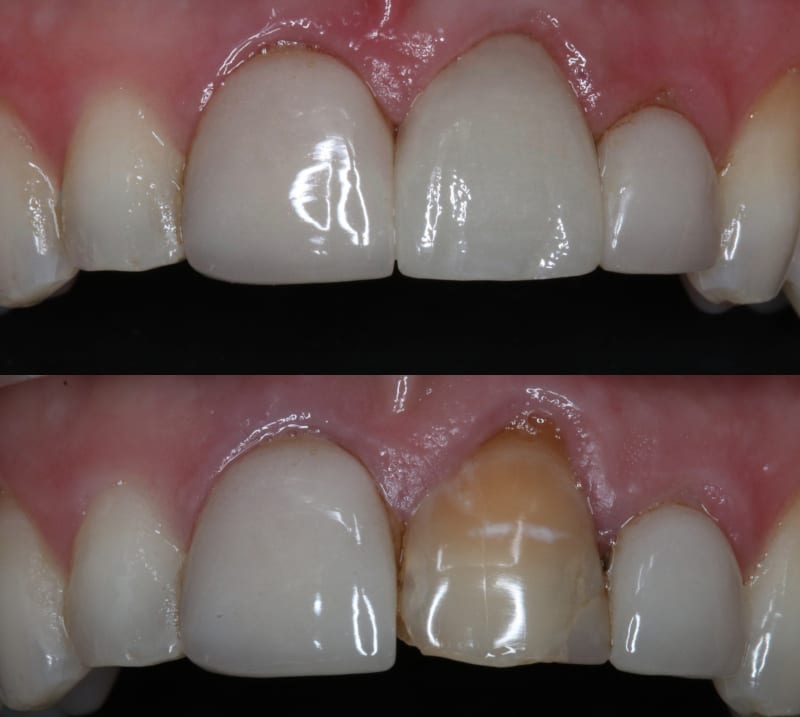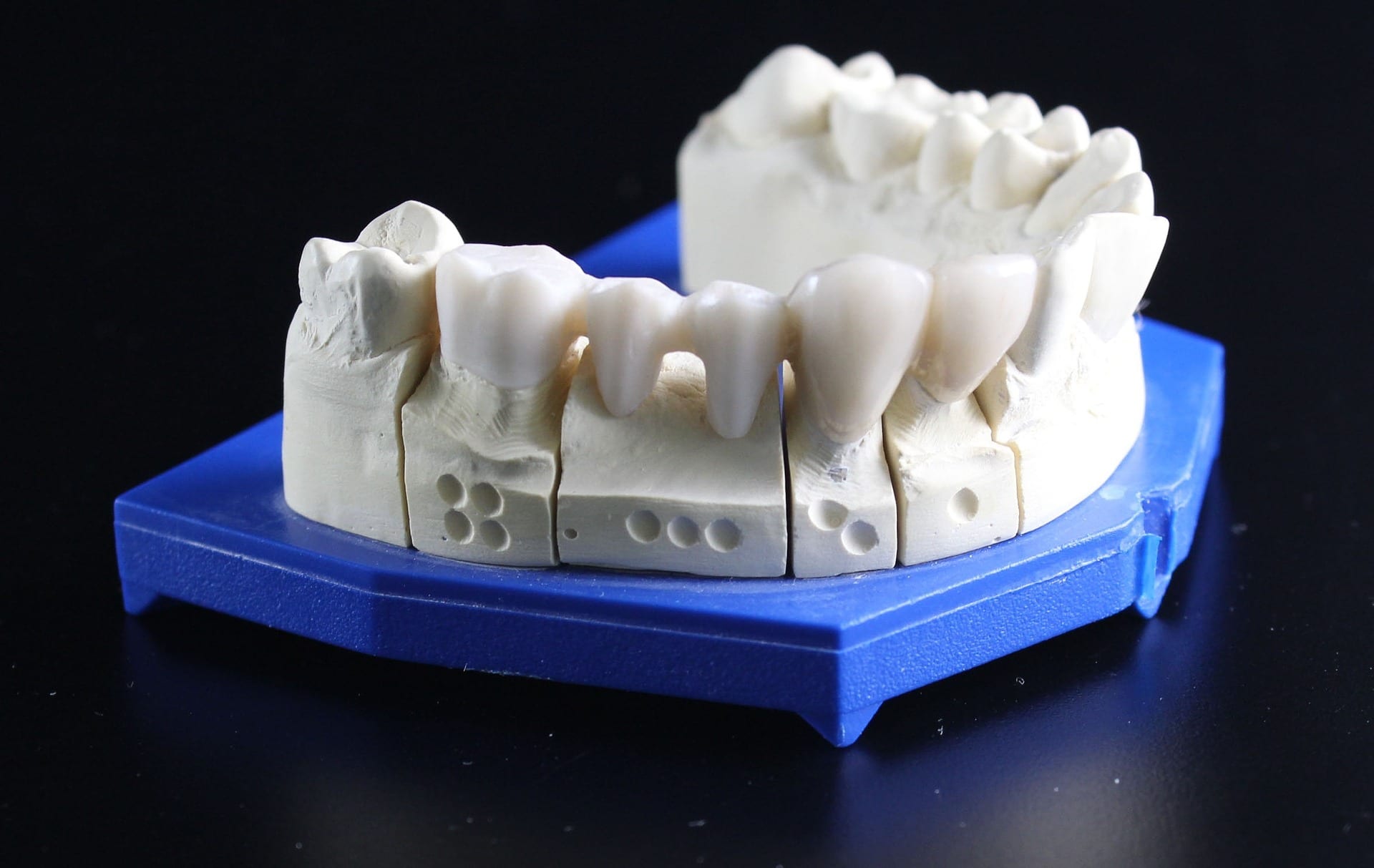Dental crown
Crowns, Inlays & Onlays
If you are having dental treatment in Poland, you’ll probably going to hear your dentist talk about a crown or dental cap. But what is a dental crown, how does it work & what will it cost? These are all questions we will deal with in this article.
Dental crowns are a popular dental restoration that can improve both the appearance and function of your teeth. Dental crowns are a versatile solution to a variety of dental problems, from damaged or decayed teeth to cosmetic concerns such as misshapen or discolored teeth. By covering the tooth with a custom-made cap, dental crowns can provide protection, support, and a natural-looking finish to your smile.
-
What is a dental crown?
A crown, sometimes known as dental cap, is a type of dental restoration which completely caps or encircles a tooth or dental implant.

-
Why is a dental crown needed?
Crowns are often needed when a large cavity threatens the ongoing health of a tooth. Crowns are often used to improve the strength or appearance of teeth. While inarguably beneficial to dental health, the procedure and materials can be relatively expensive.
-
How are dental crowns made?
The most common method of crowning a tooth involves using a dental impression of a prepared tooth by a dentist to fabricate the crown outside of the mouth. The crown can then be inserted at a subsequent dental appointment. Using this indirect method of tooth restoration allows use of strong restorative materials requiring time-consuming fabrication methods requiring intense heat, such as casting metal or firing porcelain which would not be possible to complete inside the mouth.

-
What are the reasons why I need a dental crown?
There are many reasons:
Replace existing crowns which have failed
Restore the form, function and appearance of badly broken down, worn or fractured teeth, where other simpler forms of restorations are unsuitable or have been found to fail clinically.
Improve the aesthetics of unsightly teeth which cannot be managed by simpler cosmetic and restorative procedures.
Maintain the structural stability and reduce the risk of fractures of extensively restored teeth including those which have been endodontically treated.
Restore the visible portion of a single dental implant -
What are dental crowns made from?
Crowns are either made from metal, ceramic or a mix of both. As the name suggests, full metal crowns are entirely cast in a metal alloy. There are a multitude of alloys available and the selection of a particular alloy over another depends on several factors including cost, handling, physical properties & biocompatibility. Dental ceramics or porcelains are used primarily for their aesthetic properties compared to metal restorations. These materials are generally quite brittle and prone to fracture.
-
How much do dental crowns cost in Poland?
A crown or onlay in Poland will cost from £300 on average compared to £795 in the UK.
-
What is an inlay or onlay?
Inlays and onlays are used in molars or premolars, when the tooth has experienced too much damage to support a basic filling, but not so much damage that a crown is necessary. The key comparison between them is the amount and part of the tooth that they cover. An inlay will incorporate the pits and fissures of a tooth, mainly encompassing the chewing surface between the cusps. An onlay will involve one or more cusps being covered. If all cusps and the entire surface of the tooth is covered this is, then known as a crown.
-
How many treatments are required for a dental crown?
Usually, two treatments are required because crowns are usually manufactured in a laboratory; however, it is possible to have this treatment in just one visit to the dentist using CAD-CAM.
-
What is CAD-CAM?
CAD-CAM (aka Computer Aided Design-Computer Aided Manufacture) is a fabrication method which aids the production of dental restorations e.g., crowns, bridges, inlays and onlays. It is possible for these indirect restorations to be provided in one visit.

